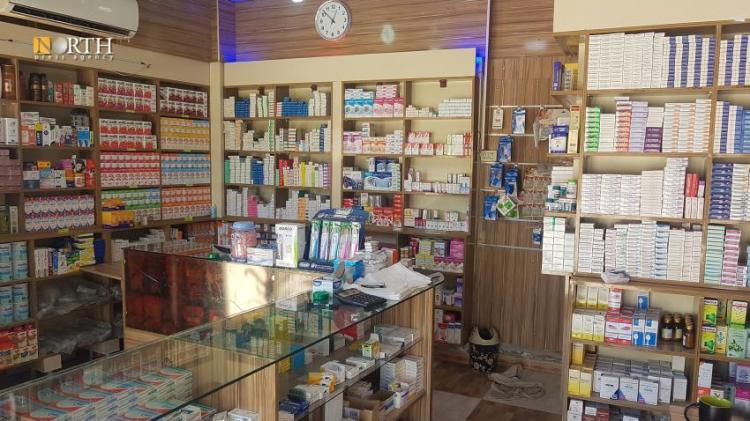Victor Mustafa
KOBANI, Syria (North Press) – Residents of the northern Syrian city of Kobani were shocked at the unusual increase in prices of medicines. Just this week, the prices of most Syrian medicines more than tripled, partially due to the monopoly of a select few traders. Residents demanded that the Autonomous Administration find local alternatives and create a centralized warehouse for medications.
Kobani resident Fawaz Khalil told North Press that "the prices of medicines have reached more than three times their previous value in Kobani. There is a loss of some types of drugs in pharmacies; the conditions are very bad, because of both the high prices of medicines the loss of some of them.”
Khalil continued, "an item that was sold at 500 Syrian pounds a month ago is now priced at 2,500 SYP.” He called on the Autonomous Administration to find a solution to this problem and fix drug prices.
Kobane resident Khalil Abbou told North Press that "drug stores recently added a profit rate of 55 percent to drug prices in addition to the pharmacist profit rate of between 25% -30%. This reflects negatively on the population and significantly reduces their ability to obtain medicines in light of the deteriorating living conditions.”
Abbou explains that the solution is either to establish a large drug store like those in Qamishli, or a central pharmacy like in the city of Manbij, to distribute medicines to pharmacies at a low profit rate in order to reduce the burden on the population.
Kobani pharmacist Omar Youssef told North Press that "the prices of Syrian medicines were cheap when the Syrian government was providing support to companies and pharmaceutical laboratories, but the situation has changed now, and the government no longer abides by its obligations towards drug companies and factories, which led drug owners to buy dollars from the black market, and thus led to the price hikes.”
Youssef added that imposing very high customs duties on medicines arriving from Syrian government areas to the city of Manbij contributed to monopolization and manipulation of medicine prices in light of the merchants controlling the commercial methods linking the Autonomous Administration areas and government areas. This is in addition to the absence of price controls imposed by companies.
Badrakhan Shaheen, with the Pharmacists Union in Kobani, told North press that "the prices of medicines cannot be controlled, because the problem exists in companies and pharmaceutical factories in Syrian government areas; the only first-aid solution is to establish a central drug warehouse."
Shaheen adds that the establishment of a central drug store by the Autonomous Administration’s Health Board would standardize drug prices at all pharmacies, as the presence of multiple drug stores leads to a difference in their prices, hence the difference in the price of the same drug at pharmacies.
He pointed out that over a year and a half, there was a 90-percent price control and unification in the regions of northeastern Syria, but for nearly two months "the situation is different and difficult to control."
[editing by Lucas Chapman]

